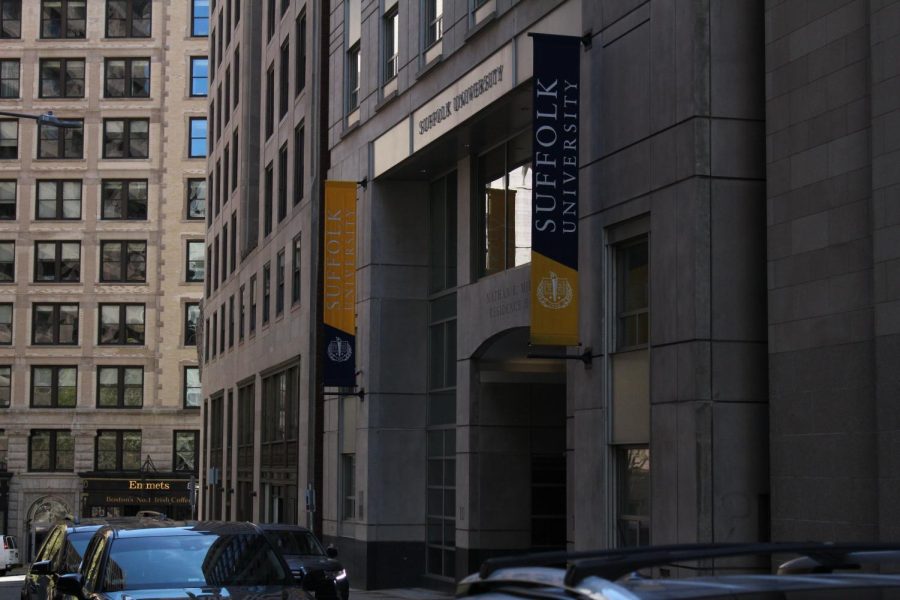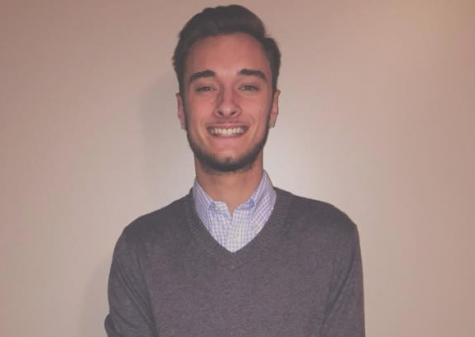Suffolk may find itself with a new and permanent president in the near future, as the university opened up a position profile and corresponding application for the top office, on Thursday.
After multiple years of practically playing musical chairs for the high seat, Suffolk’s at-the-time Provost Marisa Kelly was appointed to become an acting president in the summer of 2016 while the university began an international search process.
In a statement sent out university-wide on Thursday, Suffolk, who has been partnered with the search firm AGB Search, announced that candidates can apply for the position of Suffolk’s President through Nov. 20.
“After that date, AGB Search will evaluate and assess applicants, with the goal of having a first list of candidates for initial consideration by the search committee in early December,” said the statement.
With a date set in which applicants can put forth their names for consideration, and an initial time frame of when deliberation upon who will take the office of president in place, some members of the university community are awaiting the impending changes.
“I am looking forward to the results of the presidential search. I have certainly been involved in the university for a long time,” said Associate Professor and Chair of the Department of Advertising, Public Relations, and Social Media Robert Rosenthal in a recent interview with The Suffolk Journal. “I think that we will get some good candidates. We have a very good search firm that understands us, which is important.”
Rosenthal, who has been with the university since 1983, was involved with the accreditation process five years ago during the time of negative publicity centered around former university president David Sargent and the aftermath of his departure. During this accreditation process, Rosenthal focused primarily on governance. Rosenthal said that some of the biggest qualities of the next president that he will look for, will to be able to understand, to be inclusive and willing to listen to people prior to making decisions.
The university’s position profile listed online calls for a variety of skills and qualities that hope to draw worthy and dedicated candidates.
The profile outlines intent to seek candidates with “Understanding of national and global student recruitment methods, retention, and enrollment management,” the “Ability to identify, increase, and diversify revenue sources, with generation of new resources through vigorous fundraising,” and “Deep knowledge of sound strategic planning and clear decision making based upon regional, national and global trends concerning the challenges of higher education,” among other characteristics.
Listed among these include past success on implementing diversity throughout students and administration as well as the ability to channel the vast network of Suffolk alumni.
“There are three things I am looking for: [the next president] should understand us and who we are, they need to understand what we have gone through and our mission,” said Rosenthal. “Second, they have to be able to raise money. The third thing I am looking for is that they have to be a good communicator and be the face of the university to the public.”
Suffolk’s recent turbulent history at this position has prompted the need for stability and lasting results, regardless of any positive or negative spotlight the collegiate institution may have cast upon itself.
“Steady, bold, thoughtful, and strategic leadership is expected from a president who will listen carefully, assess fairly, and act decisively,” the university’s Presidential search website states. “The president will be the trusted voice and vision of Suffolk University for the long term.”
After much inconsistency in the top office since 2010, the search coming to a seemingly near conclusion can in effect lift a weight off of the shoulders of the university that has suffered media backlash and knocks upon its reputation as a result of the constant shuffling of the seat of the president.














